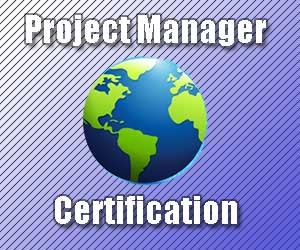 This designation is issued by the International Project Management Association (IPMA) through member associations in each country. The nickname for level C certification is ‘Certified Project Manager.’
This designation is issued by the International Project Management Association (IPMA) through member associations in each country. The nickname for level C certification is ‘Certified Project Manager.’
This is the primary project manager certification from the IPMA. It is equivalent to the PMP (Project Management Professional) and the PRINCE2 Practitioner certifications.
The exact number of certifications in level C are not known but the IPMA states that at the end of 2014, there were about 75,000 certifications worldwide in levels B and C.
The letters “IPMA-C” are used after one’s name upon certification.
Who is it For?
The IPMA-C certification is intended for project managers who wish to demonstrate their competence. Because it has an experience requirement, the candidate must already be in a position of managing projects.
Education Requirements
All IPMA levels require a written exam, the content of which is taken from the IPMA Individual Competence Baseline (ICB). This document outlines the three levels of competence required of project management professionals: Behavioural, contextual, and technical. The ICB contains 46 individual items of competence on which project professionals are judged.
This exam usually has multiple choice as well as written response questions.
There are no other project management courses required, although you could take one of the many online or in-person courses that teach the content of the ICB. There is also no requirements relating to background education, such as a post-secondary (university of college) degree or high school diploma.
Experience Requirements
To become IPMA-C certified, you must have been in a responsible leadership position in the management of projects for at least 3 out of the past 6 years.
Other Requirements
In the United States, as part of the initial assessment you must write a detailed report about a project you have managed. You must describe your responsibilities and decisions that were made that affected the outcome of the project. The project itself must meet the minimum complexity ratings outlined in the application.
Also as part of the initial application, you must also perform a “self-assessment” using the 46 competence elements within the Individual Competence Baseline. This involves a 0-4 rating on elements like:
“P1.2.1. Know the principles of project management and the way they are implemented.”
If you give yourself glowing marks even though you don’t understand the ICB, the IPMA will not reject the application. But an assessor will visit your place of work to confirm the findings of your self assessment. It is also a study tool for the exam because the 46 competence items are the foundation of the ICB. Simply put, if you don’t understand the 46 competence items, you are probably not ready to write the exam anyway.
Once the initial application is made, the exam is written. After the exam, a one day workshop must be attended which consists of practical project management exercises. After this workshop, an assessor will come to your worksite to confirm the experience requirements and results of the self assessment.
Official Textbook
The official textbook is called the IPMA Individual Competence Baseline (ICB). This book is available free from the IPMA’s website.
Cost
In the United States, the cost for the initial application and exam is $195. Once the exam has been passed a fee of $1,295 applies to the workshop and on-site assessment (Total = $1,490). This will vary from country to country.
Maintenance
The certification is valid for 5 years, after which an application for recertification must be submitted. This include another self-assessment as well as evidence of Continuing Professional Development. This involves courses, presentations, and active involvement in project management. If you are weak in any area, the IPMA might require another interview. The recertification fee is $395.
Organization
The IPMA is the global organization that develops the standards and the member (country) associations act as certifying bodies. It is these member associations that preside over the certification process, therefore you need to find the association in your country and determine the requirements directly from them. Because those requirements change we cannot give you exact details that apply in every country.
In fact, even the designations themselves are different in some countries, for example, in Canada the IPMA-D certification is called Certified Project Management Associate (CPMA). Thus, we have outlined the IPMA specifications on this page but most of the content is subject to change from country to country.
Learn More
To learn more, surf the IPMA web site and check out the IPMA level C page. Make sure you find the member organization in your country to determine the exact requirements that apply to you.
